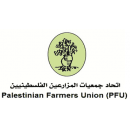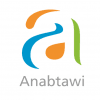Case Studies/Fact Sheet Development Consultancy
Integrated Market Development Program across the Occupied Palestinian Territory”
Terms of Reference
Case Studies/Fact Sheet Development Consultancy
Background & Introduction:
The Palestinian Farmers Union (PFU) in partnership with OXFAM is implementing a project entitled “Integrated Market Development Program across the Occupied Palestinian Territory” that is funded by SDC and DANIDA and aims to contribute to a resilient, sustainable, and equitable agricultural growth. The project is implemented by Agriculture Development Association (PARC), Economic & Social Development Center of Palestine (ESDC), Palestinian Farmers Union (PFU), and UWAC. The SDC-DANIDA project is a four-year large-scale agricultural market development program in the West Bank and Gaza. The program aims to operate at two levels: at the sectoral level to facilitate agricultural market system changes and specific value chains level. Three inter-related outcomes will be targeted: (1) Market-based interventions and facilitation result in improved quality and increased market share. (2) Agriculture sector and its key sub-sectors attract and create more income opportunities and empowerment for women and youth. (3) The internal and external operating environment becomes more conductive for agricultural sector, reducing barriers, and creating opportunities.
CONTEXT AND BACKGROUND
The state of Palestine total area of cultivated land is estimated at 1.2 million dunums, or 21% of the total area of the WBGS, of which 90% is in the West Bank and 10% in the Gaza Strip. Eighty-one percent of the area is rain-fed; the remaining 19 % is irrigated. While rangeland amounts to 2.02 million dunums, the area available for grazing is only 621,000 dunums. In addition to the limited grazing area available, livestock breeders and farmers continuously deal with the effects of the Israeli occupation’s annexation procedures.
In April 2019, United States President Donald Trump announced a “deal of the century” to resolve the Israeli-Palestinian conflict. The plan does not place any restrictions on Israel in regard to annexing parts of the West Bank. In regard to borders, the plan recognizes 70% of the West Bank as the right of Palestinians, which gives Palestinians less land than previous proposals. The plan also will give the Jordan Valley, which is important for Palestinian agriculture, to Israel. The Jordan Valley, which is a Palestinian path to the Jordan River, irrigates 80,000 hectares of agricultural land in the West Bank. The plan would not allow Palestinians to control their own water resources. From a Palestinian perspective, any form of annexation would be completely disastrous to Palestinian control of their land and self-dependency.
In addition to annexation, farmers are also dealing with competition within the Palestinian market as a result of Israeli dumping and the monopolization of large Palestinian companies. With regard to dumping, many farmers have difficultly marketing their crops because the Israeli occupation authorities deliberately flooding the Palestinian market with Israeli products, forcing Palestinian farmers out of competition. Palestinian farmers also face competition from large Palestinian companies, who are capable of selling their products at a much lower price than small-scale farmers. Palestinian small-scale farmers cannot compete with these prices and, therefore, are being forced out of the Palestinian market.
PFU aims to raise awareness and disseminate information about the current situation and challenges of small-scale farmers, especially in Area C. The enhancements of farmers’ steadfastness cannot be ensured without changes in policy. In order for there to be changes in policy, it is important that the government as well as local and international NGOs be aware of the current problems that farmers face and propose policy changes. PFU’s position is that without policy changes, in the case of annexation, Palestinians would lose all land (including but not limited to agricultural land) and resources, displacing hundreds of thousands of Palestinians and further increasing poverty and food insecurity. With regards to market competition, many small-scale farmers will be forced out of the market because they will not be able to compete with Israeli practices of dumping and monopoly. Therefore, it is critical that PFU develops factsheets and policy briefs to the proper audience in order to create awareness about the current situation on the ground.
PURPOSE OF THE CONSULTANCY
The consultant will be responsible for developing a total of 9 case studies/fact sheets on dumping and its impact as well as policy recommendations on different issues. Each case study or factsheet will cover a specific topic, such as dumping of certain crops, annexation and Area C, COVID-19, market regulation as well as any other topic that emerges during the period of the consultancy. Case studies or Factsheets will be decided upon with PFU management based on a monthly task order as per the necessity.
PURPOSE OF THE ASSIGNMENT
The main purpose of developing these factsheets and case studies is to analyze and present the specific issues faced by small-scale Palestinian farmers. Factsheets/ case studies should clearly present the current situation at hand, with both quantitative and qualitative data, in order for appropriate policy interventions to be proposed.
CONSULTANCY OBJECTIVES
PLAN AUDIENCE AND USE OF FINDINGS
PFU will use the factsheets/ case studies developed by the consultant to inform and raise awareness of key governmental bodies, local and international NGOs, and farmers about the current situation of the related topics. The final PFU-approved factsheets/ case studies will be shared with governmental bodies and local and international NGOs to encourage them to propose policy interventions and form key policy asks that will enhance the steadfastness of Palestinian farmers.
The outputs of this consultancy will be utilized by PFU to highlight key information that will encourage support for small-scale Palestinian farmers which, in turn, will strengthen Palestinian presence in Area C through developing / encouraging government policies for investors and farmers.
PFU plans to develop 9 case studies/factsheets during the period October 2020 to October 2021. Case studies / factsheets shall be issued on monthly basis. The selected consultant shall receive a monthly task order to define type of case study or fact sheet requested for that specific month.
Case studies shall focus on dumping issues for variant commodities such as water melon, potato, onion, grapes, poultry, etc.
CONSULTANCY QUESTIONS
METHODOLOGY AND ACTION
The following methodology will be applied in carrying out the consultancy as outlined:
DELIVERABLES
9 CASE STUDIES/FACT SHEETS, including narrative, with referenced statistics presented in tables, charts, photos and graphs. The following structure is proposed:
All case studies/fact sheets must be submitted in both English and Arabic languages.
TIMEFRAME
The consultant will have 12 months to undertake the above-mentioned tasks including desk and field research. PFU will ask the consultant on monthly basis to develop a case study or factsheet that PFU finds out its necessary to work on. The produced materials will be reviewed by PFU staff and feedback will be provided to the consultant.
MANAGEMENT
The commissioning manager of the consultancy will be PFU Executive Director. The consultant will submit action plan including detailed methodology prior to starting data collection phase for each case study / factsheet. PFU’s Executive Director will provide necessary technical support for the development of the methodology and tools and review all produced materials.
REQUIRED SKILLS
The technical offer should include:
FINANCIAL PROPOSAL
The Financial proposal should contain the following information:
The remuneration is to be paid based on the following milestones:
Monthly payment for the completed task order
Acceptance: Award of a proposal does not imply acceptance of its terms and conditions. PFU reserves the option to negotiate on the final terms and conditions with the consultant.
Please submit the proposal (technical & financial offer) and requested documents by sealed envelopes to the Palestinian Farmers Union Headquarter (al-Bireh, close to the representative office of Netherlands) no later than the end of the day on 24/09/2020.
For any questions, feel free to contact Abbas Milhem at PFU’s head office: 02 240 0792





















